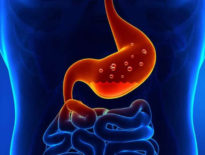
A very common complaint I hear from my patients is they can’t lose the weight they’ve gained over the last few years no matter what they do. The weight gain happens to coincide with the cessation of their menstrual cycle (aka menopause) or surgically induced menopause. It seems to manifest as the spare tire (belly fat) or mid body weight gain or an increase in bra size. It’s often reported that their dietary intake has not changed and there was no change in activity level. So, what is the problem?!
With the decline in both estrogen and progesterone, our ability to burn fat is less efficient. Though these two hormones are not as powerful as the effects of thyroid, insulin, and cortisol in the fat burning hierarchy; nevertheless, they play an important role.
Estrogen is an insulin sensitizing hormone that controls the negative impact of cortisol. Progesterone opposes the action of estrogen on insulin, but works together with estrogen in controlling the cortisol. The combination of insulin and cortisol spells disaster for burning fat. The longer they are partnered up, the harder it is to burn fat.
So what do we do to fix the problem?
I know I sound like a broken record, but it’s imperative to cut down on the carbs, especially those carbs that are processed. In menopause, we are far more carb reactive and stress sensitive. What we once were able to eat without the threat of even an ounce of weight gain has now lead us to wearing only stretch leggings and oversized blouses. So, reducing sugar in fruit and starchy vegetables will help reduce insulin surges. Beware of the “healthy snacks” that only fool us into thinking we can have all we want with any consequence. Organic is not synonymous with “all you can eat”.
Another important factor leading to extra pounds is the disrupted sleep patterns many of us experience in menopause. Lack of sleep raises cortisol and insulin levels. Stressful thinking, or what the Buddhist call “monkey mind”, can keep us reeling in the middle of the night with non- productive thought patterns. Taking special nutrients such as L-theanine, valerian, hops, and passionflower can resolve that problem. Last but not least is how we exercise. Leisure walking in nature can lower cortisol. Weight training at least once a week and interval cardio workouts 2-3 times a week can stabilize blood sugars and insulin.
Don’t forget, laughter, prayer, meditation, socialization and napping. They all work to fine tune the body in this transition time for women.
For more information and consultation with Dr. Maria Belluccio, call us at 813-964-0847.


